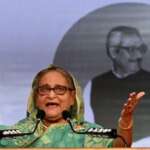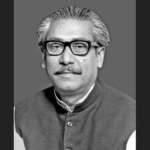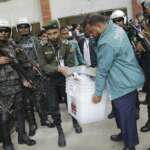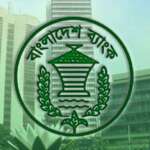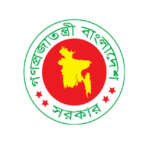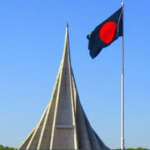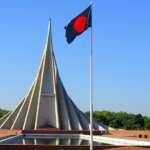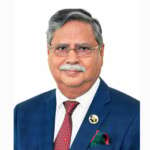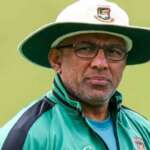A Closer Look at Bangladesh
Bangladesh Flag

Bangladesh Formation Date
Bangladesh achieved independence from Pakistan on December 16, 1971.
Bangladesh Capital Name
Dhaka
Bangladesh Neighbours
Exploring Bangladesh
Introduction
Located in South Asia, Bangladesh is a small but densely populated country that holds great significance in the region. With a rich history dating back to ancient civilizations, Bangladesh has undergone numerous changes and developments, making it a fascinating destination for cultural exploration. The name "Bangladesh" is derived from the Bengali words "Bangla" meaning the land of Bengal and "desh" meaning country, reflecting its location and identity.Key Takeaways
- Bangladesh is a small but densely populated country in South Asia. - The name "Bangladesh" is derived from the Bengali words "Bangla" and "desh". - The country has a rich history dating back to ancient civilizations.Geography
Bangladesh is located in the delta region of the Ganges-Brahmaputra-Meghna river system, making it a land of rivers. It is bordered by India on three sides and Myanmar on the southeast. The country has a diverse landscape with the Bay of Bengal to the south and the Himalayas to the north. Its physical features include low-lying plains, hills, and wetlands. Bangladesh is also rich in natural resources such as natural gas, coal, and fertile land for agriculture. The climate in Bangladesh is tropical with hot summers and mild winters. Monsoon season brings heavy rainfall, which can cause flooding in some parts of the country.Origin and History
The history of Bangladesh dates back to ancient civilizations such as the Indus Valley Civilization and the Mauryan Empire. In the 16th century, the Mughal Empire ruled over Bengal until British colonization in the 18th century. After gaining independence from British rule in 1947, Bangladesh was part of Pakistan until it gained its independence in 1971. Since then, Bangladesh has faced challenges such as natural disasters and political turmoil, but it has also made significant progress in economic and social development.Government and Politics
Bangladesh is a democratic country with a parliamentary system of government. The country is divided into eight administrative divisions and 64 districts. The current political system was established in 1991, and the country has held regular elections since then. Bangladesh maintains friendly relations with its neighboring countries and is a member of the United Nations, Commonwealth of Nations, and World Trade Organization.Commerce and Economy
Agriculture is the main economic sector in Bangladesh, employing over 50% of the workforce. The country is also a major producer of textiles and garments, making it one of the largest exporters in the world. Other important industries include fishing, jute production, and shipbuilding. Bangladesh has strong trade relations with countries like China, India, and the United States. The official currency of Bangladesh is the Bangladeshi taka.Demographics
Bangladesh has a population of over 160 million people, making it one of the most densely populated countries in the world. The majority of the population is Bengali, with small ethnic groups such as Chakma, Garo, and Santal. The median age in Bangladesh is 27 years old, and the population is predominantly young. The country has made significant progress in reducing poverty rates and improving access to education and healthcare.Culture
Bangladesh has a vibrant culture that is deeply rooted in its history and traditions. Art, music, festivals, and traditions play an essential role in everyday life. The country celebrates numerous festivals throughout the year, including Eid-ul-Fitr, Durga Puja, and Pohela Boishakh (Bengali New Year). Traditional dance forms such as Baul and Jatra are also popular in Bangladesh.Languages and Religion
The official language of Bangladesh is Bengali, spoken by the majority of the population. However, there are also numerous regional dialects spoken in different parts of the country. Islam is the dominant religion in Bangladesh, with over 90% of the population practicing it. Other religions include Hinduism, Buddhism, and Christianity, which also have a significant influence on the country's culture and traditions.Education and Healthcare Systems
The education system in Bangladesh follows a 5-3-2 structure, with five years of primary education, three years of secondary education, and two years of higher secondary education. The literacy rate in Bangladesh has significantly improved in recent years, with a current rate of over 70%. The healthcare system in Bangladesh is still developing, but the government has implemented various initiatives to improve access to healthcare for its citizens.Sports and Recreation
Cricket is the most popular sport in Bangladesh, with the national team achieving success on the international stage. Football and kabaddi are also popular sports in the country. Bangladesh has also made its mark in other sports such as shooting, archery, and weightlifting. The country's natural landscape also offers opportunities for outdoor activities such as hiking, trekking, and water sports.Tourism
Bangladesh may not be a top tourist destination, but it has much to offer for travelers seeking an authentic cultural experience. Some popular tourist attractions include the Sundarbans mangrove forest, Cox's Bazar beach, and the ancient city of Bagerhat. The country also has a rich culinary scene with delicious dishes such as biryani, samosas, and various seafood delicacies. The transportation infrastructure is still developing, but there are options for both domestic and international travel within the country.Travel Information for Foreign Visitors
Travelers to Bangladesh require a visa, which can be obtained from a Bangladeshi embassy or consulate. It is also recommended to have all necessary vaccinations before traveling to the country. While in Bangladesh, it is essential to follow local customs and etiquette, such as dressing modestly and removing shoes before entering homes or religious sites. The official currency is the Bangladeshi taka, and credit cards are accepted in major cities, but it is always advisable to carry some cash for smaller purchases.Quotes
- "Bangladesh is a country of rivers and people." - Sheikh Mujibur Rahman - "Bangladesh is not a rich country in terms of money, but we are very rich in terms of culture." - Taslima Nasrin - "I am proud of my Bengali heritage and culture, and I want to represent it to the world." - Shakib Al HasanConclusion
In conclusion, Bangladesh may be a small country, but it has a rich history, diverse culture, and warm hospitality that makes it a unique destination for travelers. Despite its challenges, the country has made significant progress in economic and social development and continues to strive towards a brighter future. With its beautiful landscapes, delicious cuisine, and welcoming people, Bangladesh is a hidden gem waiting to be explored.Bangladesh Highest Point Name
The highest point in Bangladesh is located in the Saka Haphong Range and is called Keokradong. It stands at a tall 3,488 meters (11,453 feet) above sea level.
Bangladesh Capital Longitude
Dhaka, Bangladesh's capital, has a longitude of 90.356331°
Bangladesh Capital Latitude
Latitude: 23.810332°
Bangladesh Official Languages
Bangladesh's official languages are Bengali and English.
Bangladesh Ethnic Groups
Bangladesh is an ethnically diverse country with numerous ethnic groups, each with its own distinct culture and language. The majority of the population is made up of Bengalis, the native ethnic group. Other major ethnic groups include Chakma, Marma, Tanchangya, Tippera, Biharis, Garo, Hajong, Kui, and Santals. Several minority religious and ethnic groups such as Hindus, Buddhists, Christians, and Animists also form communities in the country. The minority ethnic group of Meitei, Nepalese, and Chinese also live in the country. These ethnic groups are scattered throughout the country and are often found in densely populated urban areas. Many Bengalis also identify with one or more of these minority ethnic groups, thus contributing to the country’s cultural and linguistic diversity.
Bangladesh Religions
Bangladesh is an officially secular country, with freedom of religion enshrined in its constitution. Islam is the largest religion, comprising approximately 90% of the population. Hindus comprise most of the remainder. Other religions present in Bangladesh include Buddhism, Christianity, and animism. The government has secured significant rights for religious minorities, such as reservation for them in public service jobs and university admissions. There are laws in place which protect the freedom of religion. Even though religious tensions have created some religious strife in the past, Bangladesh remains a peaceful and tolerant society in general.
Bangladesh Total Area
Bangladesh has a total area of 147,570 square kilometers (56,977 sq mi).
Bangladesh Land Area
is147570 km2
Bangladesh Water Area
According to the Encyclopedia of the Nations, the area of water in Bangladesh is 8,130 square miles (21,090 km²).
Bangladesh Total Population
As of 2020, the total population of Bangladesh is approximately 167.5 million.
Bangladesh Currency Name
The currency name of Bangladesh is the Bangladeshi Taka (BDT).
Bangladesh Currency Symbol
The Bangladesh country currency symbol is BDT.
Bangladesh Calling Code
The Bangladesh country calling code is +880
Bangladesh Internet TLD
www.aveholidays.bd
How to Say "Bangladesh" In Different Languages?
- English
- Bangladesh (en-CA)
- French
- Bangladesh (fr-FR)
- German
- Bangladesch (de-DE)
- Hindi
- बांग्लादेश (hi-IN)
- Telugu
- బంగ్లాదేశ్ (te-IN)
- Malayalam
- ബംഗ്ലാദേശ് (ml-IN)
- Kannada
- ಬಾಂಗ್ಲಾದೇಶ್ (kn-IN)
- Marathi
- बांग्लादेश (mr-IN)
- Tamil
- பங்களாதேஷ் (ta-IN)
- Indonesian
- Bangladesh (id-ID)
- Italian
- Bangladesh (it-IT)
- Japanese
- バングラデシュ (ja-JP)
- Nepali
- बाङ्ग्लादेश (ne-NP)
- Urdu
- بنگلہ دیش (ur-IN)
- Russian
- Бангладеш (ru-RU)
- Mandarin
- 孟加拉国 (zh-CN)
- Thai
- บังกลาเทศ (th-TH)
- English
- Bangladesh (en-US)
- Vietnamese
- Bangladesh (vi-VN)
Bangladesh Popular Holidays
- New Year's Eve
- Ashura
- Eid al-Adha
- Muharram
- Janmashtami
- Durga Puja (Vijaya Dashami)
- Durga Puja
- Lakshmi Puja
- Diwali
- Chhath Puja
- Guru Nanak Jayanti
- Christmas Eve
- New Year's Day
- 1 January
- Saraswati Puja
- 30 January
- World Bengal Day
- 21 February
- International Mother Language Day
- 21 February
- Languages Martyrs Day
- 21 February
- Bhasha Day
- 21 February
- Bangamata National Award Day
- 3 March
- International Women's Day
- 8 March
- Jatiya Sishu Pannela
- 15 March
- Down Syndrome Day
- 21 March
- World Water Day
- 22 March
- World Tuberculosis Day
- 24 March
- Mataram Day
- 25 March
- Bangladesh Independence Day
- 26 March
- Independence and National Day
- 26 March
- Independence Day
- 26 March
- Mongol Shobhajatra Day
- 1 April
- World Autism Awareness Day
- 2 April
- Easter Monday
- 5 April
- World Health Day
- 7 April
- Pipilika Day
- 8 April
- Shab-e-Barat
- 13 April (14 April)
- Arefin Siddique's Birthday
- 13 April
- Bengali New Year
- 14 April
- Pahela Baishakh
- 14 April
- Pahela Baishakh (2nd Day)
- 15 April
- Jatiya Sangsad Divas
- 17 April
- World Heritage Day
- 18 April
- Earth Day
- 22 April
- Vashu Sankranti
- 23 April
- Savar Disaster Day
- 24 April
- Shab-e-Qadr
- 30 April (2 May)
- May Day
- 1 May
- Labour Day
- 1 May
- World Press Freedom Day
- 3 May
- Bodlandu Bahni Fair
- 7 May
- World Red Cross Day
- 8 May
- Mother's Day
- 10 May
- Buddha Purnima
- 12 May
- Jumatul Wida
- 22 May
- Eid-ul-Fitr
- 24 May
- Amnesty International Day
- 28 May
- International Children's Day
- 1 June
- World Environment Day
- 5 June
- International Asian Games Day
- 15 June
- World Dengue Day
- 15 June
- Father's Day
- 18 June
- Jumatul Bidah
- 19 June
- Young Generation Day
- 4 July
- World Population Day
- 11 July
- Bogura Day
- 12 July
- Chaitya Parikrama Day
- 18 July
- International Tiger Day
- 29 July
- Eid-ul-Azha
- 31 July (2 August)
- Hiroshima Day
- 6 August
- National Mourning Day (2nd)
- 15 August
- Youth Day
- 15 August
- National Mourning Day
- 15 August
- International Literacy Day
- 8 September
- World Ozone Day
- 16 September
- Residential Day
- 24 September
- National Sports Day
- 30 September
- The World Day for Decent Work
- 7 October
- National Mental Health Day
- 10 October
- Vijaya Dasami
- 12 October
- Eid-e-Milad-un-Nabi
- 13 October
- Shab-e-Miraj
- 24 October
- Press Freedom Day
- 3 November
- Aviation Day
- 7 November
- World Science Day
- 10 November
- Garos Day
- 15 November
- Library Day
- 17 November
- World Fisheries Day
- 21 November
- Teachers Day
- 21 November
- International Day of Persons with Disabilities
- 3 December
- Victory Day
- 16 December
- Bangladesh Victory Day
- 16 December
- Cristmas Day
- 25 December



